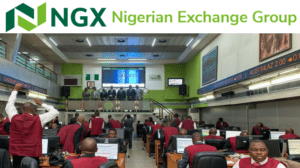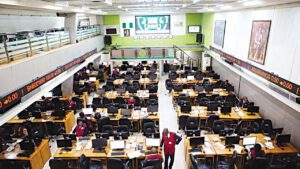Sterling Bank forecasts N4.04bn profit in Q3
Sterling Bank Plc has forecasted a profit after tax of N4.04billion in its unaudited result and accounts for third (Q3) ended September 30, 2021.
Sterling Bank Plc has released its earnings forecasts for the third quarter of 2021 (Q3 2021).
The lender on the Nigerian Stock Exchange (NGX) also forecasted gross earnings of N38.4 billion in Q3 2021 and Interest income projected at N29.82 billion.
Other key financial parameters was projection of N26.5 billion net operating income and operating expenses projected at N22.11 billion.
The bank had reported profit before tax of N8.02 billion in the Q3 2020 as against N7.65 billion recorded in comparable period of 2019.
The bank reported a trading income of N7.1 billion for the third quarter 2020 compared with N1.9 billion for the corresponding period of 2019, representing an increase of 264.7 per cent. Gross earnings stood at N106.07 billion in 2020 as against N109.66 billion in 2019. After taxes, net profit closed third quarter 2020 at N7.37 billion as against N7.58 billion in third quarter 2019.
The third quarter performance came on the background of prevailing uncertainties that characterised the macro-economic environment in the wake of the outbreak of the COVID-19 pandemic and the attendant fiscal reforms by the Federal Government.
The Managing Director, Sterling Bank, Mr. Abubakar Suleiman said the bank’s performance continued to reflect positive results of its strategic decisions and investments in focus areas as it continued to record significant improvement in both funding and operational costs.
According to him, with economic activity picking up in the third quarter, following the gradual ease in the nationwide lockdown, the bank had continued to leverage on its existing remote work policy to enhance workforce productivity while ensuring uninterrupted service delivery to both existing and new customers.
He noted that a 26.2 per cent dip in fee income occasioned by the downward review of electronic banking fees, and slower loan origination due to the protracted lock down was moderated by a 264.7 per cent spike in trading income.
He said growth in balance sheet was driven by a 26.5 per cent growth in low cost funds, which saw the bank’s CASA mix improve to 71 per cent from 60 per cent, delivering a 6.6 per cent growth in customer deposits.
“Our cash and short-term balances increased in line with the higher regulatory reserves while interest income also declined by 6.7 per cent, which was offset by a 17.0 per cent decline in interest expense. This delivered a 120 basis points drop in cost of funds and, consequently, a 100 basis points increase in net interest margin,” Suleiman said.
He added that in terms of asset quality, the bank proactively increased its cost of risk by 100 basis points to 1.9 per cent, while recording a marginal increase in non-performing loan (NPL) ratio to 2.9 per cent, well below its target of 5.0 per cent.
He explained that the decline in operating expenses was achieved by moderating administrative expenses despite growth in other operating expenses, including Asset Management Corporation of Nigeria (AMCON) and insurance fees.
He pointed out that the bank was able to maintain a strong capital and liquidity position of 16.1 per cent and 32.5 per cent respectively above regulatory benchmark




